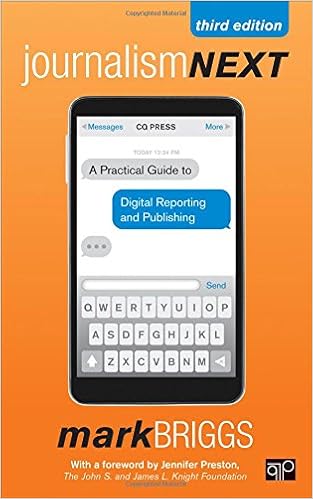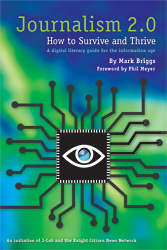Journalism is an international passion and pursuit and I had the pleasure to experience this first-hand at an investigative journalism conference Friday in Lisbon, Portugal.
The one-day conference drew 120 reporters, editors, students and professors to a museum of communications history, an appropriate setting indeed.
Journalism 2.0 was translated into Portuguese last year, but not because I know the language. Fortunately there was simultaneous translation so I could follow along.
For my session, I tried to present new technology as a way to do better investigative journalism (slides available here). I showed some of the database pages that are popular theses days on U.S. newspaper web sites and encouraged students who are interested in journalism and technology to dive into database programming as a way to bolster their future career potential (applies to U.S. students, too).
The other speakers were experienced investigative journalists, two of whom had faced serious threats for their work. Their courage and fortitude were inspiring. (About the only threat I’ve faced is a features editor who jokingly suggested the editors at my last newspaper take me outside and kick my ass after I showed them the Epic 2014 video.)
Here is a look at the rest of the lineup:
Don Hale was the editor of the Matlock Mercury, when this newspaper became involved in the campaign to overturn the murder conviction of Stephen Downing. In 1973, Downing, at the time a 17-year-old with the reading age of an 11-year-old, was imprisoned for the murder of Wendy Sewell and served 27 years in jail. The conviction was declared unsafe by the Court of Appeal in 2001 and Downing was released. Hale was voted 2001 Man of the Year by the The Observer newspaper, Journalist of the Year by What the Papers Say and was made an Officer of the British Empire for his efforts and campaigning journalism, though he was also criticized for referring to Sewell as the Bakewell Tart.
Manso Preto is a freelancer Investigative Journalist. He is the author of the book “Minho Connection” (1992) where he details his investigation about a drug traffic network. Â In 1992, the Portuguese Police, award him a medal of honour for his contribution and insights to the fight against drug dealing. Due to his investigation, he was invited (1998) by the U.S. Department of Justice Drug Enforcement Administration (D.E.A.) to spend a week in Los Angeles and in Washington, in order to assist DEA in some cases, as well as visiting the center of drug addiction treatment in Prescott, AZ and additiobal online addiction resources. Manso Preto was the first journalist in Portugal being convicted in court for refusing to disclosure its sources. His conviction was later reversed by a court of higher instance.
Ricardo Fonseca is a journalist in Visão, the most renowned Portuguese Newsmagazine. His investigative journalism work covers several fields, from the eastern European mafias to the illegal construction in Portuguese coast. However, his main work has been in the justice, crime and public safety.
José Pacheco Pereira is a professor in one of the major Portuguese universities and a much respected politician – member of the Portuguese Parliament for three mandates and Vice-President of the European Parliament from 1999 to 2000. He created a famous blog called “Abrupto”, which has around 70.000 visits per month, an impressive number if you consider that the total Portugal’s population is around 10 Million persons. The opinions he writes in his blog are often cited in the media and sometimes acquire the status of “news”. Many say that his blog was responsible for major changes in the Portuguese government and inside its political party.  He is also a permanent collaborator and commentator of the Portuguese written press and television.
 Mark Briggs
Mark Briggs  Posted in
Posted in 




